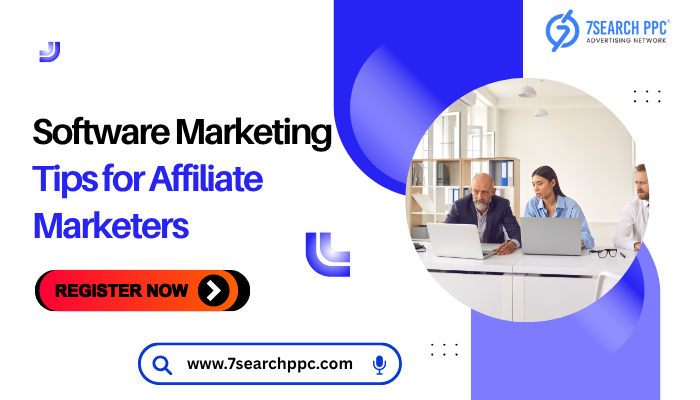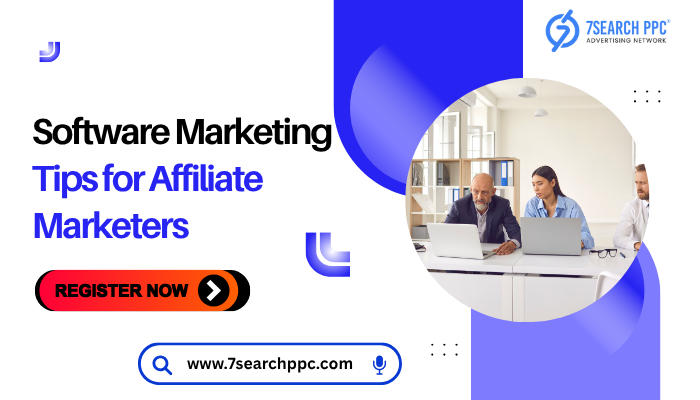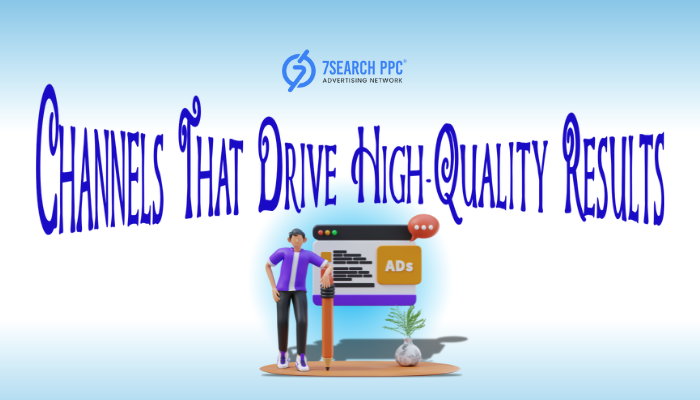
The behavior of tech-savvy audiences and delivering high-converting messages through precise affiliate strategies. Software marketing is more than just promoting digital tools for understanding. In a rapidly evolving digital space, affiliate marketers must not only stay updated but also master the art of software advertising with clarity and focus.

Understanding the Power of Software Marketing
Software marketing refers to the targeted promotion of software products, tools, and platforms—usually via digital channels—to generate user acquisition, installs, or purchases. For affiliate marketers, this is a goldmine. The recurring commissions, high-ticket subscriptions, and rising demand for digital transformation have made this niche lucrative.
The beauty of software marketing lies in its layered appeal. You’re not just selling a product; you’re offering convenience, automation, and digital freedom. Every successful campaign is a reflection of deep product knowledge, audience understanding, and performance-driven execution.
Niche Breakdown for Better Focus
Affiliate marketers entering this domain should define their niche early. Software products are vast—ranging from antivirus software, editing tools, CRM platforms, and VPNs to AI solutions and productivity suites.
Instead of targeting all, choose one high-converting sub-niche. For example:
- Remote working software for freelancers
- Cloud-based CRMs for startups
- Video editing tools for YouTubers
- VPNs for privacy-conscious users
Such laser-focused niches help you craft targeted content, build trust, and boost your software advertising results.
The Right Traffic Types to Drive Success
Traffic quality is everything in software marketing. Affiliates must choose intent-driven traffic over general traffic sources. Here are some valuable types:
- Native and display ad traffic: This works well for promoting software advertisement banners or demo-based creatives.
- Influencer/Referral traffic: Affiliate partnerships with niche influencers can generate targeted results.
- Search engine traffic: SEO-driven blog posts, tutorials, and reviews help capture high-intent users actively seeking solutions.
- Email traffic: Carefully segmented email marketing can deliver personalized offers.
Align your traffic with product positioning. For instance, programmatic advertising software benefits from professional blogs, while antivirus software does well on tech-focused channels and VPN ad spaces.
<<Maximize Every Click – Advertise Smarter Today!>>
Geo-targeting and Local Pinpointing
The best software for marketing isn’t one-size-fits-all. Understanding geographical demand is essential for affiliates. While global traffic is scalable, local geo-targeted efforts yield higher ROI in the early stages.
If you’re promoting productivity software, focusing on English-speaking countries like the US, UK, Australia, and Canada can bring consistent results. For mobile antivirus or VPN software, regions like Southeast Asia, the Middle East, and Eastern Europe show strong demand.
Localizing your campaigns, landing pages, and banners with native language or regional problems can significantly boost your software advertising impact.
Uncovering the Emotional Benefits and ROI
At its core, every software product solves a real-world problem. Your job as a marketer isn’t just to show features—it’s to amplify emotions.
When a freelancer finds a tool that simplifies their invoices, it’s not just software—it’s relief. When a parent installs antivirus software for their child’s laptop, it’s not just digital protection—it’s peace of mind.
Your copy and content should focus on:
- Reducing overwhelm
- Saving time
- Enhancing privacy
- Growing business revenue
- Securing online activity
Emotional hooks increase user trust, and when paired with smart affiliate offers, they maximize your ROI. Successful software marketing campaigns are rooted in emotional storytelling, not just technical jargon.
Why Software Marketing Delivers Strong ROI
Recurring software products often come with subscription models—monthly, quarterly, or annually. For affiliate marketers, this means:
- Consistent monthly income
- Long customer lifecycles
- Performance-based incentives
- Access to performance dashboards and resources
Using advertising management software allows you to track conversions, compare offers, and scale campaigns based on real-time performance. With transparent attribution and CPA tracking, you’re in full control of your strategy.
Your Unique Selling Proposition as an Affiliate
What sets you apart in software marketing isn’t just your link—it’s your value. Affiliates who review, test, and honestly present their experience with tools perform better.
Be the marketer who:
- Provides genuine walkthroughs and demos
- Share use cases relevant to the audience
- Gives timely comparisons (e.g., “Best advertising software for eCommerce owners”)
- Recommends based on personal results, not hype
The more human you become in your pitch, the more likely you are to gain long-term affiliate success. Authenticity is your USP.
Channels That Drive High-Quality Results

Let’s break down the best channels for affiliate marketers promoting software products:
Dedicated Ad Networks (like 7Search PPC)
7Search PPC
allows affiliates to tap into a diverse network for software-related traffic. Their self-serve interface, geo-targeting, and cost-effective CPC model make it ideal for campaigns like VPN tools, antivirus software, or cloud-based tools.
By using a platform like 7Search PPC, you can run cost-efficient ads with high conversion potential, especially when targeting users based on device, location, or behavior.
Search Engine Optimization (SEO)
Content marketing through SEO-optimized blogs, reviews, and tutorials remains one of the best channels. This is especially effective for niche-specific software advertisement strategies. Long-form guides like “Best project management tools for startups” can capture long-tail traffic.
Social Media Content
LinkedIn and Twitter work wonders for B2B software. YouTube excels at walkthroughs and reviews. Facebook groups allow you to connect with niche communities.
Native & Display Ads
A good strategy for retargeting and reaching passive audiences. Programmatic advertising software can help automate bidding and targeting for better efficiency.
Email Marketing
Nurture leads with sequences introducing software benefits, trials, or case studies. Tools like advertising management software help you segment and automate campaigns for specific audiences.
Advertising Software and Tools You Must Know
To stay competitive, you must leverage tools. Today’s top-performing affiliates use:
- Ad tracking software to monitor clicks and conversions
- Analytics tools to understand user journeys
- Landing page builders for better software advertisement performance
- Heatmap tools to identify attention points
- Programmatic advertising software for automated, scalable ads
Each of these plays a part in building a smarter, data-driven affiliate strategy.
Best Practices for Promoting Software Offers
Affiliate marketers need more than enthusiasm—they need structure. Here’s what works:
- Create comparison guides between competing software tools
- Use trial or freemium offers as CTAs
- Add callouts like “The best software for marketing freelancers.”
- Integrate live demos or screen recordings
- Encourage real-time feedback via comments, chats, or surveys
Also, choose the best advertising software to manage split testing. This helps you A/B test headlines, ad creatives, and calls to action for maximum results.
Content Types That Convert
Content is still king in software marketing. But not all content performs equally. High-converting formats include:
- “How-to” tutorials showcasing the software in action
- “Best of” lists featuring multiple software tools
- “Before vs After” performance case studies
- Troubleshooting articles based on real user queries
- Tool comparisons with pros and cons
Make sure your content includes visuals, testimonials, CTAs, and trust badges. The goal is to make the reader trust your suggestion and click through.
The Best Software for Marketing Professionals
Whether you’re promoting or managing campaigns, the tools you use can make or break your success. Some of the best software for marketing professionals includes:
- CRM platforms (for affiliate program outreach)
- Email automation tools
- Social scheduling dashboards
- Video editing tools (for YouTube reviews)
- Ad optimization platforms (to improve ad spend ROI)
The goal is to not only promote great software but to also operate your campaigns using the best resources available.
The Power of Consistency and Community
In software marketing, the game isn’t won with one viral campaign. It’s built with consistent, transparent efforts. Be the marketer who builds a community—whether through email newsletters, niche Discord groups, or Facebook communities.
Your consistent presence builds brand trust. And when people trust your software reviews, they’ll click on your affiliate links without hesitation.
Conclusion
Software marketing offers unmatched opportunities for affiliate marketers ready to step into the world of high-conversion offers, long-term commissions, and global impact. It isn’t about shouting loud—it’s about saying the right words to the right people on the right channels.
From using advertising software tools to mastering emotional connections, everything contributes to success. Platforms like 7Search PPC can help amplify your message and reach targeted traffic at scale. With the right strategies, even a beginner affiliate can turn software marketing into a recurring income powerhouse. for more…
Frequently Asked Questions (FAQs)
What type of content works best for software affiliate marketing?
Ans. Tutorials, detailed comparisons, and “best of” listicles tend to convert well. They build trust by showcasing the actual usage and benefits of software tools.
Is geo-targeting important for software marketing campaigns?
Ans. Yes, geo-targeting ensures that your software advertisements reach users who are more likely to convert based on language, economic status, and device usage.
How can I compete with big affiliates in software advertising?
Ans. By offering unique value—like detailed walkthroughs, honest comparisons, emotional storytelling, and community engagement—you can stand out, even against big players.




